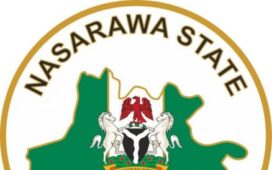In today’s world, Peace and Conflict Resolution has become a critical field of study due to rising cases of violence, political disputes, and security challenges. Nigeria, with its diverse ethnic, religious, and political landscape, often experiences tensions that require skilled professionals to mediate conflicts and promote sustainable peace.
Studying Peace and Conflict Resolution equips students with the knowledge and skills needed to analyze, manage, and resolve disputes at local, national, and international levels. Graduates can work with government agencies, NGOs, international organizations like the United Nations (UN) and African Union (AU), and security institutions.
If you’re considering this course, several Nigerian universities offer Peace and Conflict Resolution or related programs under different names. This article provides an updated list of institutions offering the course for the 2025/2026 academic session, along with admission requirements and career prospects.
What is Peace and Conflict Resolution?
Peace and Conflict Resolution is an academic discipline that examines the causes of conflicts and strategies for resolving them through negotiation, mediation, and diplomacy. It combines knowledge from political science, sociology, law, psychology, and international relations to develop solutions for disputes.
Why Study Peace and Conflict Resolution in Nigeria?
- Nigeria faces ethnic, religious, and political conflicts, creating a high demand for conflict resolution experts.
- Graduates can work in government agencies, NGOs, and international organizations.
- The course provides skills in mediation, policy-making, and peace advocacy.
- Universities in Nigeria offer practical training and research opportunities in this field.
List of Universities Offering Peace and Conflict Resolution in Nigeria (2025/2026)
Several Nigerian universities offer Peace and Conflict Resolution or related programs. Below is a list of institutions where you can study this course:
1. Universities Offering Peace and Conflict Resolution
- Obong University – Offers Peace and Conflict Resolution as a dedicated program.
2. Universities Offering Peace and Development Studies
- Salem University – Focuses on conflict prevention and sustainable peace strategies.
- National Open University of Nigeria (NOUN) – Provides flexible distance learning for students.
3. Universities Offering Peace and Conflict Studies
- Afe Babalola University – Combines theoretical knowledge with practical conflict resolution techniques.
These universities provide research projects, fieldwork, and international peace programs to enhance students’ learning experiences.
Admission Requirements for Peace and Conflict Resolution in Nigeria
1. UTME (100-Level Entry) Requirements
O’Level Credits (WAEC/NECO/NABTEB):
- English Language (Compulsory)
- Mathematics (Required in some schools)
- Government or History
- Economics or Civic Education
- Any other social science or arts subject
JAMB Subject Combination:
- English Language (Mandatory)
- Government or History
- Economics or CRK/IRK
- Literature in English, Geography, or Civic Education
JAMB Cut-Off Mark: Typically ranges between 150 and 180, depending on the university.
2. Direct Entry (200-Level) Requirements
- National Diploma (ND), NCE, or IJMB in related fields (e.g., Political Science, Sociology, Law).
- Two A-Level passes in Government, History, or Economics.
- Some universities accept a Bachelor’s degree (BSc) for advanced entry.
3. Additional Requirements
- Some schools conduct Post-UTME screenings.
- NOUN does not require JAMB but has specific O’Level requirements.
Note: Always check the official admission guidelines of your chosen university for precise details.
Career Opportunities for Peace and Conflict Resolution Graduates
A degree in Peace and Conflict Resolution opens doors to diverse career paths in Nigeria and globally. Here are some opportunities:
1. Government & Public Sector
- Conflict Resolution Officer – Mediates disputes in communities.
- Diplomat/Foreign Affairs Officer – Represents Nigeria in international peace talks.
- Policy Analyst – Develops strategies to prevent conflicts.
- Security & Intelligence Analyst – Works with law enforcement agencies.
2. International Organizations & NGOs
- UN Peacekeeping Officer – Engages in global peace missions.
- Human Rights Advocate – Protects victims of conflicts.
- NGO Program Coordinator – Manages peace projects for organizations like Amnesty International and ECOWAS.
3. Academia & Research
- Lecturer/Researcher – Teaches and conducts studies on conflict management.
- Peace & Development Consultant – Advises governments on conflict resolution.
4. Media & Legal Roles
- Investigative Journalist – Reports on conflicts.
- Mediator/Arbitrator – Resolves legal and community disputes.
With Nigeria’s increasing security challenges, professionals in this field are in high demand, making it a lucrative and impactful career choice.
Graduates can pursue careers in government, NGOs, international organizations, and academia, contributing to peacebuilding and national stability. If you’re interested in making a difference, now is the time to apply and start your journey in this rewarding field!











